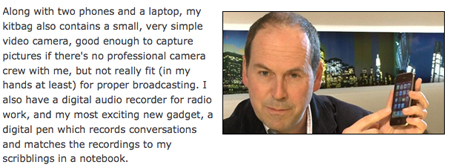Google last night (Tuesday, 20 September) announced that its social network is now open to all.
The was much optimism about Google+ when it launched in June, particularly among some journalists who were quick to share invites and sign up, but who is now using the newest social network?
A quick straw poll on Twitter suggests many are nonplussed (see tweets below).
Technology journalists, including the BBC’s Rory Cellan-Jones and Channel 4 News’ Benjamin Cohen – an early advocate who predicted Google+ could be a Twitter killer – are among those posting with enthusiasm.
So are journalists using all the features available? Despite these 10 ways journalists can use Google+ it appears most are simply using Plus for sharing stories and for conversations around them but are getting quality comments and a high level of engagement.
Even if you do not feel inclined to post or try out new features such as hangouts (video calls) on your phone, it is worth journalists being aware of one new feature: improved search – something Google should be good at. You can now search topics as well as people. With more than one billion items shared and posted on Google+ every day, according to the announcement, it is worth keeping Plus in mind as a newsgathering tool.
